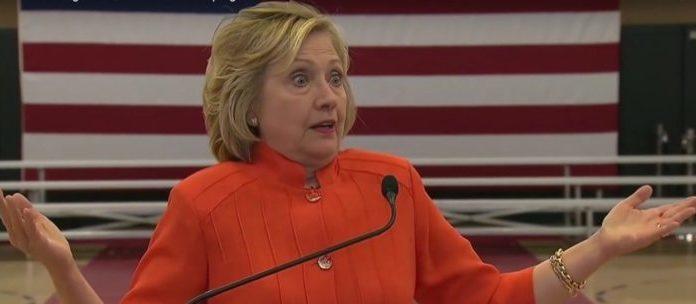(Joshua Paladino, Headline USA) Hillary Clinton‘s 2016 presidential campaign and the Democratic National Committee argued in a court filing that attorney–client privilege should prevent special counsel John Durham from accessing opposition research, The Federalist reported.
That argument, in the case of United States of America v. Sussmann, cannot withstand scrutinty according to some legal opinions.
In a letter to Durham, counsel Dan Backer for the Coolidge Reagan Foundation said effort by Hillary for America and the DNC to withhold evidence seemed “inconsistent with the terms of the Conciliation Agreements those entities executed with the Federal Election Commission.”
The Clinton campaign and the DNC originally claimed that they paid powerful leftis law firm Perkins Coie, which in turn funded Fusion GPS’s opposition research, for legal services.
That largely involved commissioning ex-British spy Christopher Steele to compile his now infamous—and debunked—Steele Dossier.
However, the lawyer at the center of the case, Michael Sussmann, also sought to sow a secondary smear involving the Trump campaign’s ties to Russian oligarchs associated with the Moscow-based Alfa Bank.
In their settlement with the FEC, they agreed to “not further contest” the finding that they had “falsely” classified the payments “as being for legal services.”
The Clinton campaign and the DNC did not try to protect attorney–client privilege when they shared the dossier and other anti-Trump claims with the FBI, State Department and mainstream media outlets, Just the News reported.
Durham has charged Sussmann with lying to the FBI about his relationship with the Clinton campaign when he baselessly claimed that then-candidate Donald Trump had established secret communications with Russian President Vladimir Putin through Alfa Bank.
Harvard Law Professor Alan Dershowitz, who supported Clinton in 2016, said Clinton and the DNC cannot assert attorney–client privilege for opposition research materials.
“It is clear as a matter of law and legal ethics that legal research intended to be made public is not protected by attorney–client privilege,” he said. “Even if it were, any privilege would be waived by testimony given about the research or the product.”
Kash Patel, a former federal prosecutor and top Trump administration Defense Department official, agreed with Dershowitz.
“The attorney client privilege, from my former federal prosecutor days, is eviscerated if you share with a third party,” Patel said on the John Solomon Reports podcast.
“But what John Durham is saying—he’s coming in over the top and saying, ‘No, no, you can’t hide behind the privilege laws,” Patel added. “This is an attempt to block information of an ongoing fraud. You cannot use the attorney client privilege. There’s a crime fraud exception.'”

